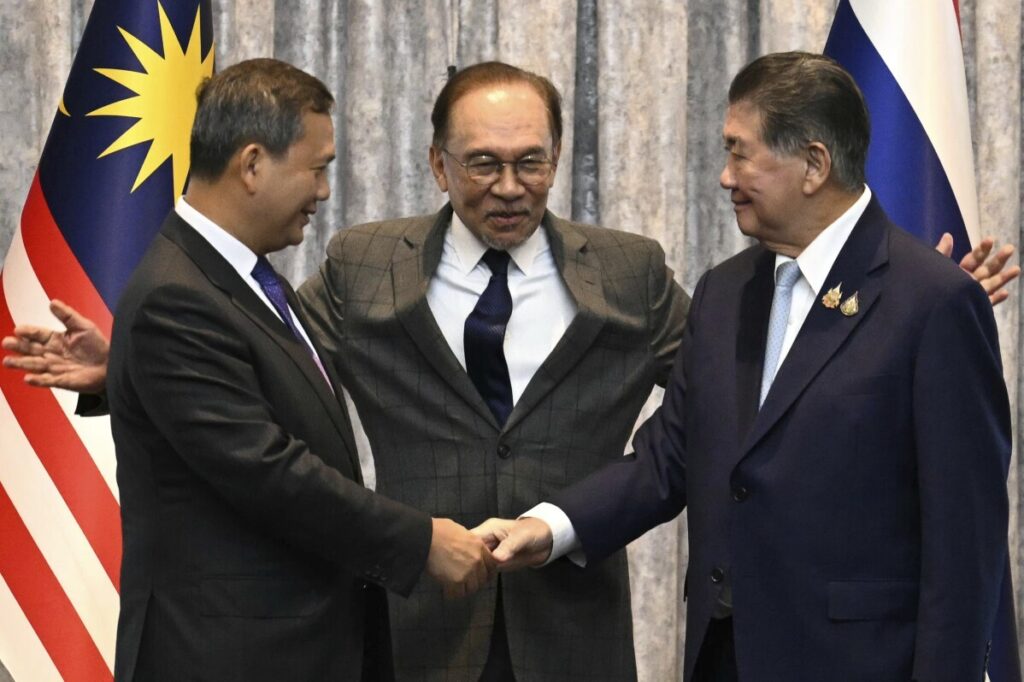Thailand-Cambodia Ceasefire Sparks Doubt Amid Ongoing Border Violence
Despite a ceasefire agreement brokered under international pressure, fighting along the Thailand-Cambodia border continues, raising serious questions about the durability of diplomatic efforts and U.S. influence in Southeast Asia.

In a troubling reminder that peace agreements on paper do not always translate to calm on the ground, the recent ceasefire between Thailand and Cambodia has already come under fire. Just hours after midnight marked the official start of an “unconditional” halt to hostilities negotiated in Kuala Lumpur, accusations flew—each side blaming the other for violations.
The Thai military charged Cambodian forces with launching attacks across multiple sectors of their disputed 500-mile-long border. Conversely, Cambodia’s Defense Ministry denied any such breaches, asserting a firm commitment to the ceasefire. This conflicting narrative exposes a precarious stability that imperils both nations’ sovereignty and regional security.
Why Does This Border Conflict Matter to America?
While these disputes may seem distant from American shores, their implications are far-reaching. Years of U.S. diplomatic efforts and economic leverage—most notably threats regarding trade agreements under President Trump’s administration—played a key part in pushing these neighbors toward negotiations. Yet, the persistence of violence tests Washington’s ability to enforce peace through strategic influence abroad.
The discord also highlights enduring weaknesses in globalist-led multilateral forums like ASEAN, whose annual chairmanship by Malaysia has so far failed to produce lasting results beyond fragile ceasefires. For America First advocates committed to national sovereignty and stable borders at home and abroad, this serves as a cautionary tale: without firm commitments backed by clear consequences, free nations risk watching chaos escalate unchecked.
How Long Will Global Pressure Override Local Realities?
The origin of this flare-up—a land mine incident injuring Thai soldiers—spiraled into deadly clashes killing dozens and displacing around 260,000 people from both countries within days. This tragic human toll touches fundamental conservative values: protecting families, securing borders, and maintaining order.
Yet instead of empowering local sovereignty through decisive action, outside powers continue applying vague diplomatic pressure with limited enforcement. Secretary of State Marco Rubio’s endorsement echoes previous promises made by President Trump demanding cessation of violence—but words alone cannot restore security if violators face no substantial penalties.
The American public deserves transparency about how our foreign policy tools are wielded—and why commitments made by foreign leaders often fall short once cameras turn away. It raises deeper questions: How credible is international diplomacy when basic trust between combatants erodes so quickly? And how should America recalibrate its approach to protect strategic interests effectively?
This ongoing saga at the Thailand-Cambodia border is more than a regional dispute—it mirrors global challenges confronting America’s leadership role amid rising instability worldwide. As patriotic citizens committed to freedom and national prosperity watch closely, Washington must demand accountability and take concrete actions that reinforce peace rather than signal weakness.
